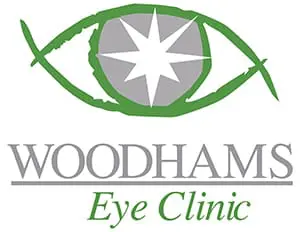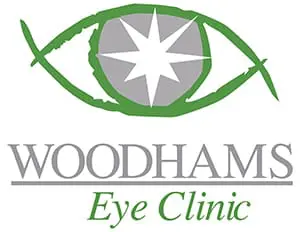Well, there are actually several different issues at work here, so a “Yes or No” answer is not possible.
First: What does it mean to be “legally blind?” In most states, if you have distance visual acuity less than 20/200 that is not correctable with glasses/contact lenses, you are legally considered to be “severely visually handicapped” (which used to be called “legally blind”). But the trick here is not what you see “naturally” (with your naked eyes), but how well you see with your glasses or contacts. Despite having such a very high myopic lens correction, if one or both of your eyes can see 20/40 or better, you are not “legally blind.” It is easy to understand, though, how somebody could feel that way you lost glasses were stranded somewhere!
Second: If your two eyes are quite different in the amount of “refractive error” (i.e. how strong the glasses prescription is), it is not uncommon for the weaker of the two eyes to never quite develop normally. Once the brain sees the best image through the lower prescription eye, it tends to ignore the other eye, so it may never develop the capacity for full (20/20) distance vision. This is called amblyopia, often called “lazy eye” (although I think the latter term insults the work ethic of the worse eye).
Third: Let us say your -9.25 eye can see 20/20 with a contact lens, but the -12.50 eye can only see 20/40, even with the very best available contact lens. We would say that the latter eye has some amblyopia and so is not fully correctable to 20/20 whether with glasses, contact lenses, a lens implant, or LASIK. This does not mean you cannot treat such severe myopia, but it does suggest you should be prepared in advance for one eye being somewhat better than the other, even with full refractive correction.
Finally, even if both eyes could see 20/20 with correction, would LASIK then be a good idea? I think not. Most reputable, experienced ophthalmologists won’t do LASIK over about -8 because there will be so much thinning of the cornea, late stability issues are a definite potential problem. These can be serious. A “hit and run” ophthalmologist might go ahead and do it, knowing (s)he will be long gone before that problem arises. A LASIK clinic may not care because if the problem does arise as long as they get paid: they will blame the surgeon ophthalmologist and claim to just be the venue for the doctor’s practice…even if they tell him what to do! Caveat Emptor.
There are other, possibly better, surgical options than LASIK. Do some research on the Internet.
_Written by J. Trevor Woodhams, M.D. – Chief of Surgery, Woodhams Eye Clinic

